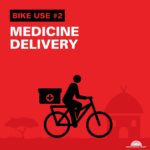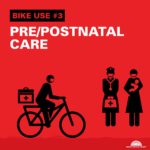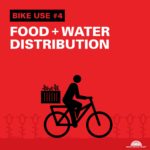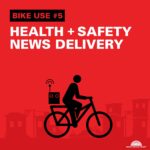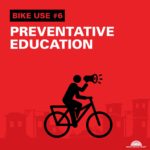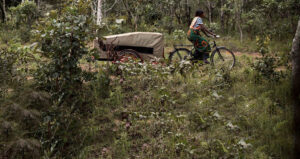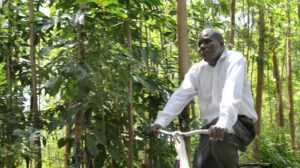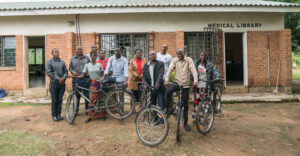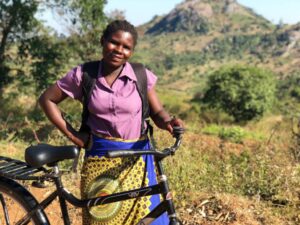Bike ambulances
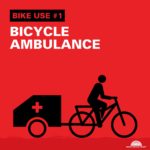
In regions where transportation is limited and health clinics and hospitals are far from homes, bike ambulances provide a vital service. Several organizations rely on Buffalo Bicycles to pull metal carts over miles of narrow dirt tracks.
Partner MAMaz Against Malaria in Zambia trains community health workers to treat severe malaria cases, particularly in children. In addition to providing care and drugs, Community Health Workers (CHWs) can transport severe patients to the nearest clinic using their bike ambulances.
